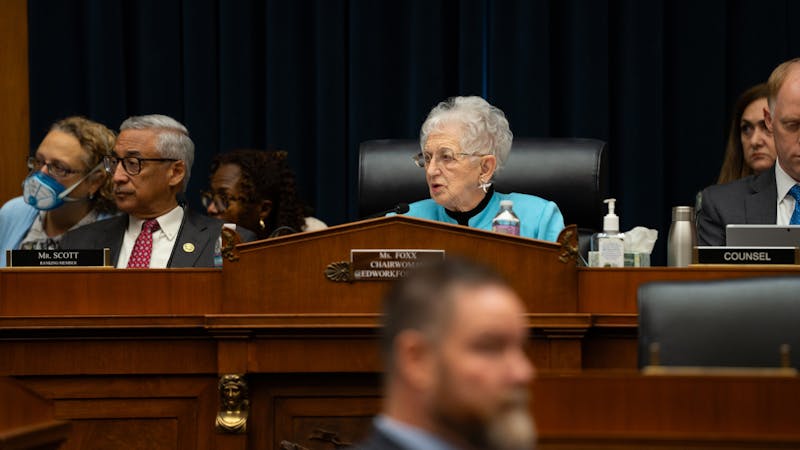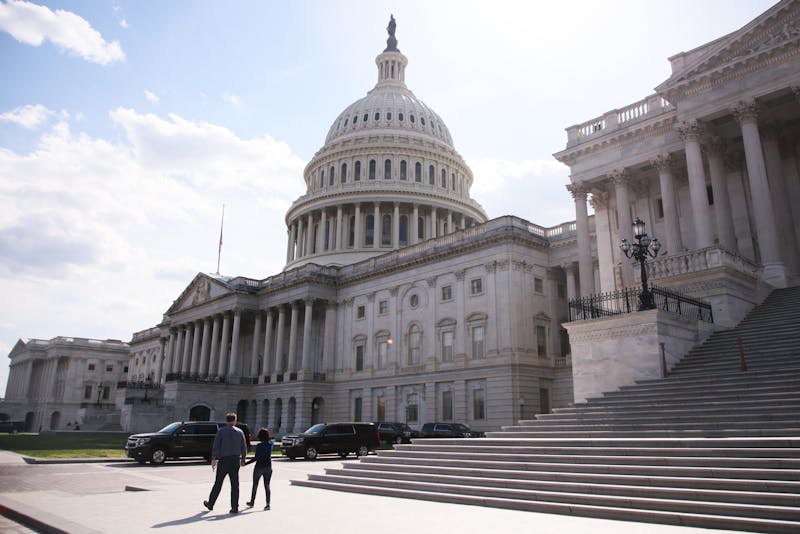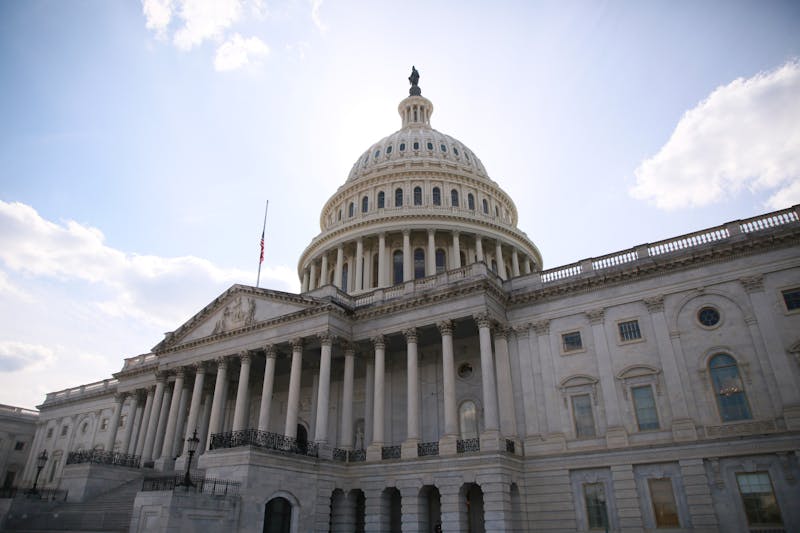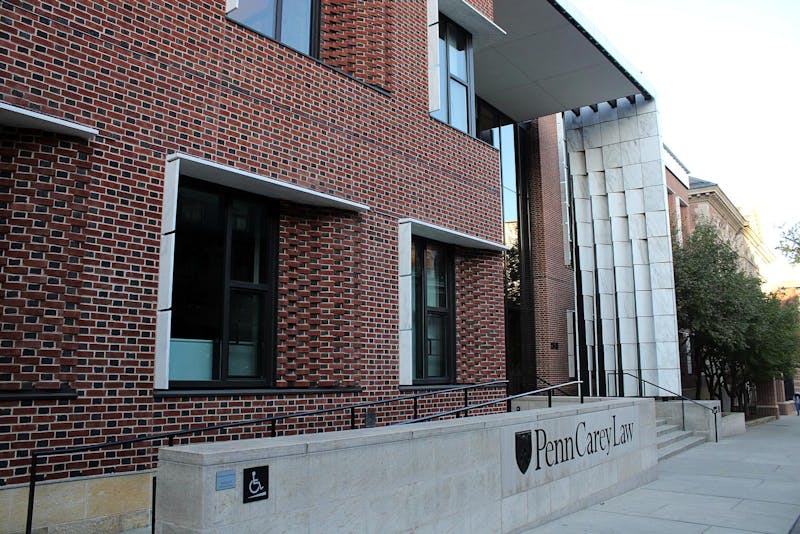
Rep. Brandon Williams (R-NY) during a Congressional Roundtable held on Feb. 29.
Credit: Abhiram JuvvadiMembers of the United States House Committee on Education and the Workforce introduced legislation aiming to make federal funding for higher education institutions contingent upon campus free speech.
1998 Wharton MBA graduate Rep. Brandon Williams (R-N.Y.) and committee Chair Rep. Virginia Foxx (R-N.C.) introduced the bill on March 15. It was referred to the House floor by a vote of 24-14 — along party lines — after a markup session on March 21. If enacted, the bill would require colleges and universities to disclose their policies on speech, association, and religion in order to receive Title IV funding from the federal government.
“Americans’ confidence in postsecondary education is at an all-time low, and rightly so,” Williams and Foxx wrote in a joint statement on March 15. “While there are several factors contributing to this national sentiment, one of the most important is institutions’ inconsistency in protecting the First Amendment rights of students and faculty.”
A University spokesperson declined a request for comment.
During the markup, Republicans cited the importance of protecting the First Amendment on college campuses, calling it “non-negotiable.”
“We might disagree, often fiercely, about different ideas on different topics, but we should be able to agree on the value of ideas themselves, especially at the place where they are most vital, and that is our institutions of higher learning,” said Rep. Kevin Kiley (R-Calif.)
The bill also seeks to “affirm the rights of student organizations” on college campuses by protecting single-sex social organizations, religious groups, and organizations that seek funding or cannot find a faculty sponsor.
Rep. Kathy Manning (D-N.C.) said during the markup that although she applauds the committee’s work in investigating antisemitism on college campuses, the proposed legislation would be counterintuitive in addressing such issues. She cited the committee’s grilling of university presidents, including former Penn President Liz Magill, in December 2023 about their failure to condemn calls for genocide.
She said the bill’s endorsement of institutional neutrality would render universities unable to take a stance on issues.
“This bill, I'm afraid, would actually protect the kind of extreme hate speech and rhetoric we condemned at that now-infamous hearing,” Manning said.
The proposed legislation comes amid an ongoing investigation into Penn by the Committee on Education and the Workforce about the University’s response to antisemitism on campus. In a letter to Interim President Larry Jameson and University Board of Trustees Chair Ramanan Raghavendran on Jan. 24, Foxx wrote that “Penn has demonstrated a clear double standard” in how it commits to freedom of speech.
In response to a Daily Pennsylvanian request for comment on the proposed legislation, Sen. Bob Casey (D-Pa.) wrote that rising hate on college campuses is “a clarion call” for Congress to take action.
“No student at Penn or any school should have to feel unsafe on campus,” Casey wrote. “The events of the past several months have underscored the urgency of combatting antisemitism and discrimination in all its forms, and I am going to keep fighting like hell against the bigotry that plagues our world.”
During Thursday’s markup, all 14 Democratic members of the committee present voted against moving the bill forward, while all 24 Republican members present voted for it. Democratic committee leadership recommended its members to vote against the bill.
Rep. Judy Chu (D-Calif.) wrote in a statement to the DP that the proposed legislation “is not a real solution” to issues facing college campuses, calling the bill “misleadingly named.” Chu is a member of the Congressional Equality Caucus, which released its own statement on Thursday opposing the bill.
“As a former college educator, I believe in a First Amendment that protects the marketplace of ideas and doesn't allow public funds to be funneled towards groups that explicitly discriminate against certain Americans,” Chu wrote.
Penn has been the subject of multiple investigations into its response to campus antisemitism within the past year. The House Ways and Means Committee also began probing Penn on Jan. 10, questioning the University’s tax-exempt status over its alleged lack of support for Jewish students on campus.
The Department of Education launched its own investigation into antisemitism on Nov. 16, 2023, though it has since been dismissed due to the existence of a lawsuit containing the same allegations.
The Daily Pennsylvanian is an independent, student-run newspaper. Please consider making a donation to support the coverage that shapes the University. Your generosity ensures a future of strong journalism at Penn.
Donate












